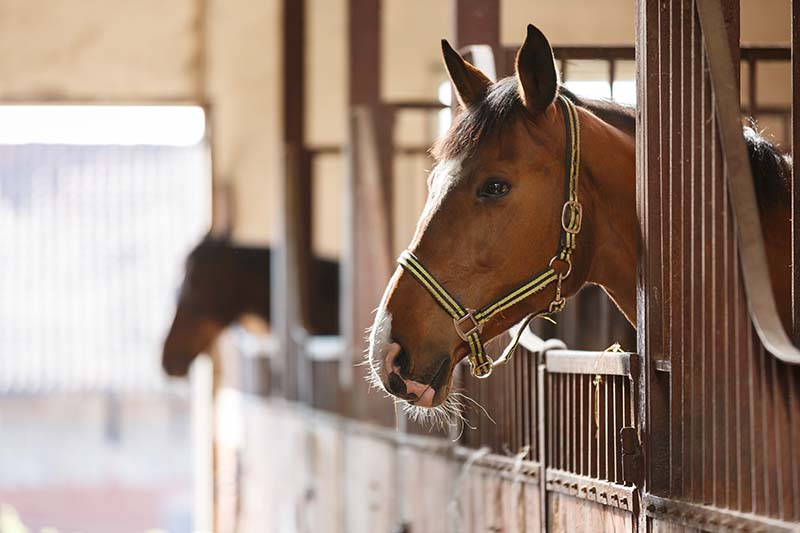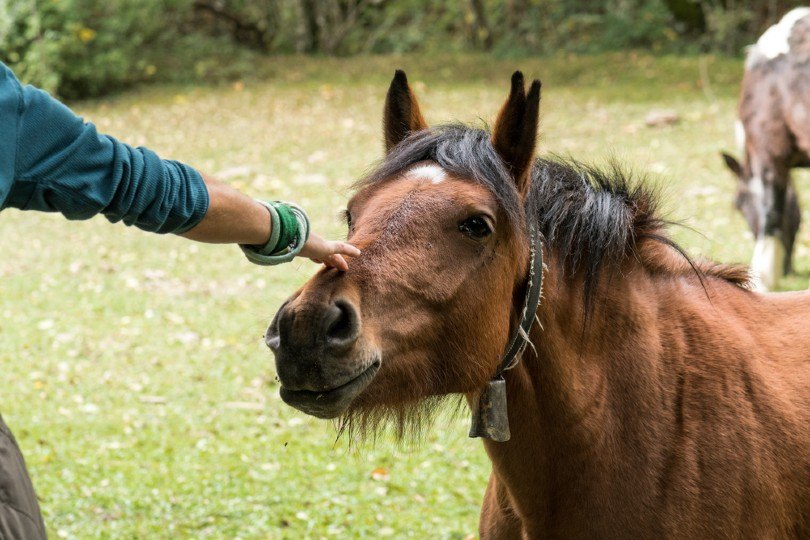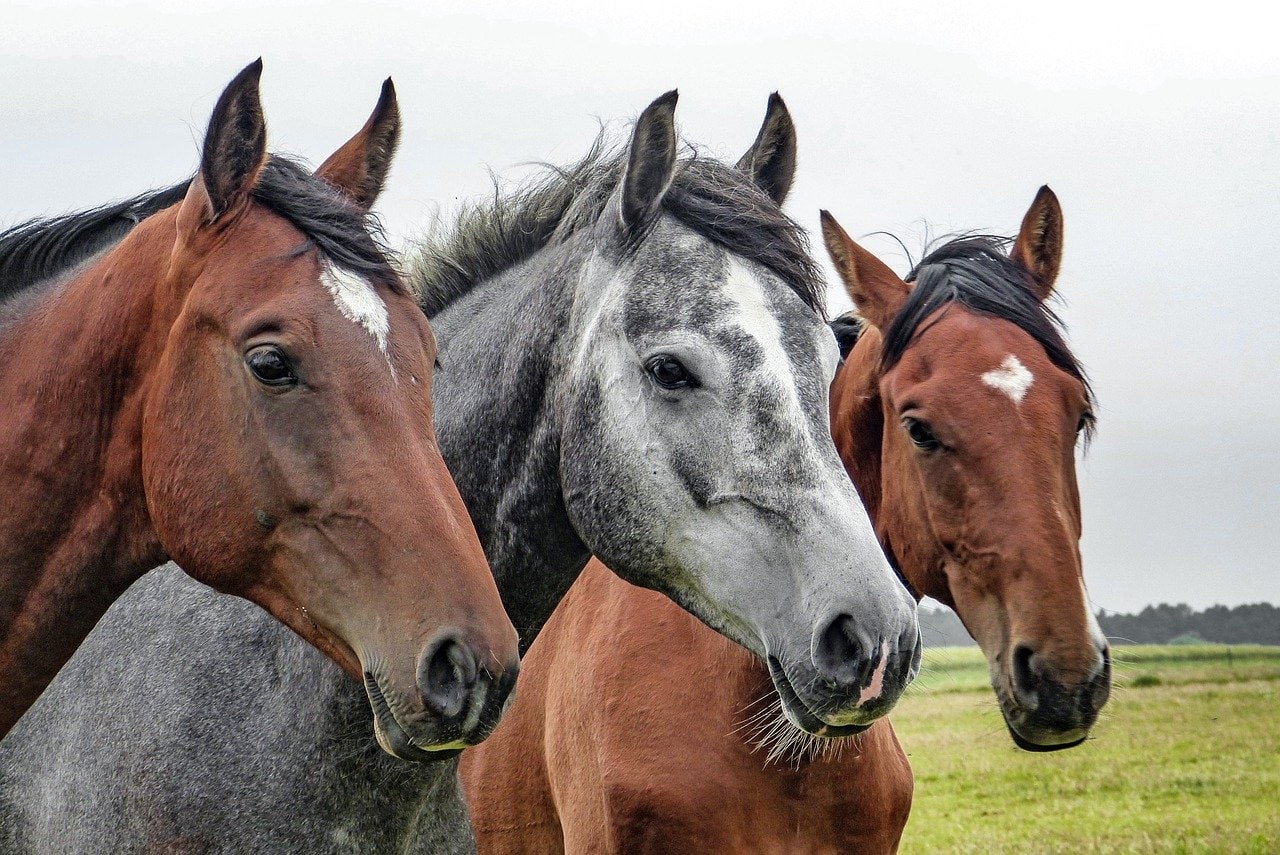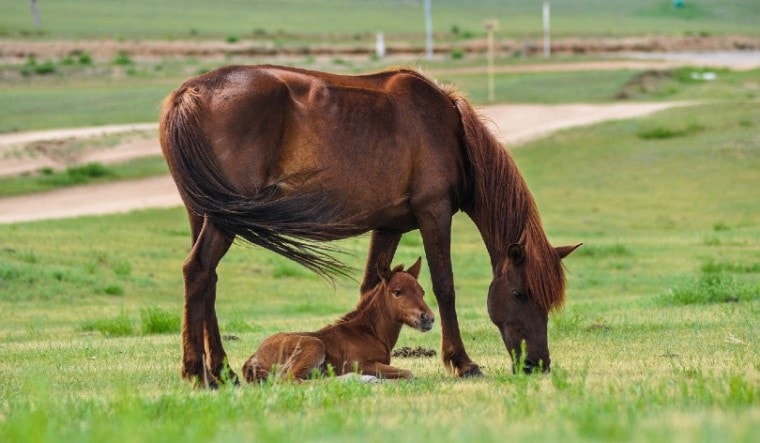
Approximately 50 million years ago horses originated in North America. Over time they spread and only became domesticated and part of human society took much more recently.
Horses have long been an integral part of human culture, providing us with transport and companionship for centuries. Horses can be found in large numbers on almost every continent, and they are so widespread, it seems as though they’ve always been with us.
It wasn’t always this way; for a long time, there was some mystery around the origins of horses and when and where they were first domesticated. Since the inception and widespread adoption of mechanization, horses have slowly been put to other uses, such as pleasure riding and sports, so it’s easy to forget how indebted we are to the domestication of this humble animal.
Before the invention of the steam train, followed relatively closely by automobiles, horses were the only way to travel long distances at a fairly high speed. They were an essential part of war and hunting too, and the story of the domestication of the horse is closely tied with the evolution of society as we know it.
Here, we take a look at where horses originated and the story of when we first domesticated these beautiful animals.

Where did horses originate?
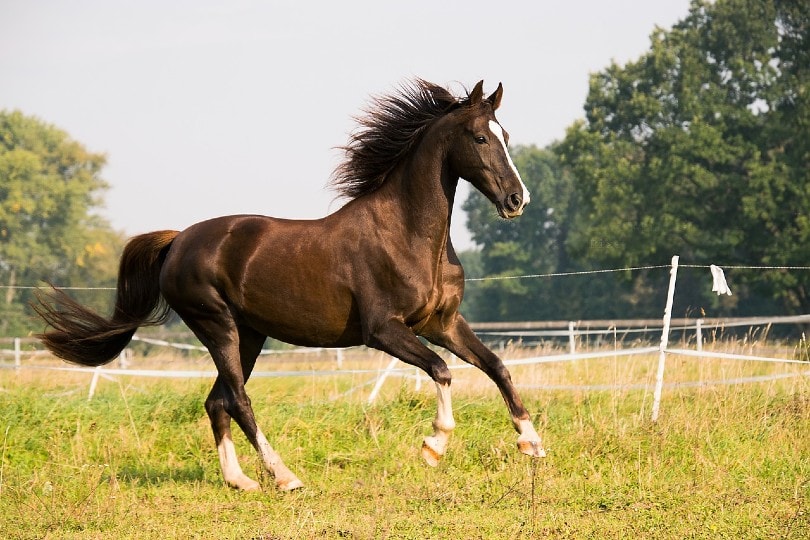
Most experts agree that horses originated in North America approximately 50 million years ago. They were small animals, no larger than a small dog, and lived mostly in forests. They gradually increased in size over millions of years and adapted to more and more environments, including grassy plains. These horses then spread through to Asia, Europe, and then the rest of the world via the Bering land bridge that once connected Alaska to Siberia, where horses were then able to cross into Asia and spread westward. Some made it as far as Africa and evolved into the zebras that we know today.
Around 10,000 years ago, North American horses went extinct, most likely due to a climate cooling event that saw the extinction of various other mammals too. Luckily, horses had already made their way off the continent, ensuring the survival of the species. Horses were then reintroduced by colonizing Europeans and Spanish Conquistadors in the late 1400s, and by the 1700s, most of the western rangeland of the U.S. was home to massive herds of horses. Some scientists estimate that there were as many as 2 million horses in the U.S. by this time, with even conservative estimates suggesting as many as 1 million.
When were horses first domesticated?
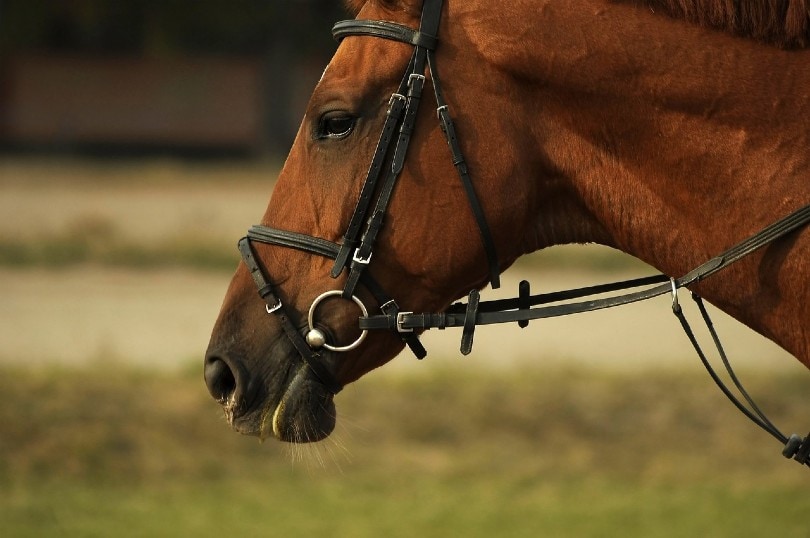
The exact point of horse domestication has long been up for debate, and the best evidence that scientists had at their disposal was archeological and DNA evidence pointing toward the Eurasian Steppe, a region consisting of Ukraine, southwest Russia, and Kazakhstan. The theory had a few loose ends, though, and scientists set out to solve the mystery once and for all via genetic analysis.
Researchers from the University of Cambridge analyzed a genetic database consisting of the genomes of over 300 horses sampled from the Eurasian Steppe and found that domestic horses most likely did originate here and bred with wild mares as they spread through Europe and Asia. Most experts agree that horses were most likely first domesticated as a source of meat and milk and began to be ridden a short time later.
According to the study, it appears that horses were gradually domesticated in various parts of Asia and Europe, with the integration of various species of wild horses into domestic herds most likely for breeding purposes. The study explained what had previously baffled scientists: The DNA evidence suggested that horses were domesticated many times in different places around the same period, and the inclusion of wild horses in breeding largely solved the riddle.
When were the first horses ridden?
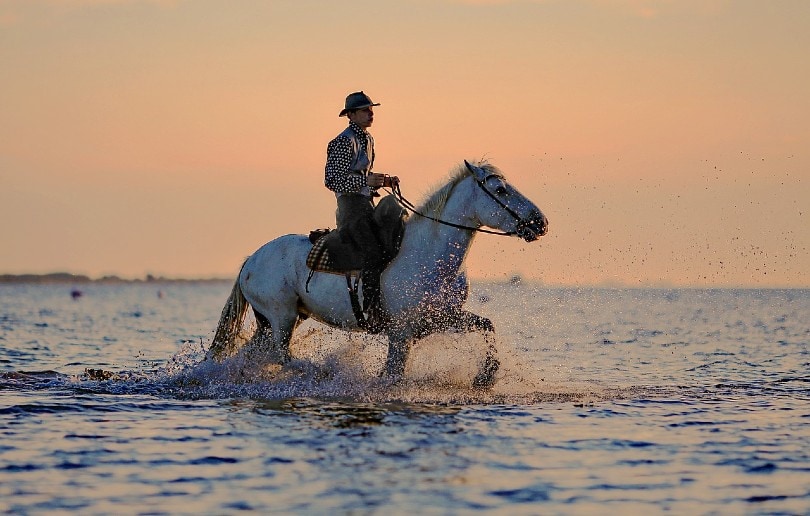
Horses were initially domesticated for their meat and milk and possibly to do agricultural work on farms, and they were used for riding at the same time. Having an animal that could be used for food, milk, hauling, and to be ridden was a huge advantage for any society, and it’s easy to see why horses were finally domesticated. The aforementioned study suggests that horses were first domesticated around 5,500 years ago, almost 1,000 years earlier than previously believed, and around 2,000 years earlier than Europe. Researchers analyzed ancient pottery fragments and found traces of horse milk dating back as far as 5,500 years.
Interestingly, researchers also found traces of the use of a thong bridle used in the gap between the teeth of a horse’s lower jaw. This shows that horses were not only being used for food but were also soon being ridden after domestication. When the horse was re-introduced to North America in the 1400s, it was fully domesticated and far more docile and easy to control, leading to American Indians adopting the use of horses right away, with the advantage of receiving animals that were already selectively bred for riding.

Conclusion
While horses certainly originated in North America, their development and domestication occurred elsewhere. The docile, ridable horses we have today are in large part due to the societies living in and around the Eurasian Steppe and the further development by Europeans. When horses finally made their way back to Northern America, they were different than their perished ancestors. Horses have had a massive part to play in the evolution and development of human society, and while their use today has become more for pleasure than utilitarian, we certainly owe them a huge debt.
See also:
- How Long Can Horses Be Left Alone? (Vet Reviewed Facts)
- Can Domesticated Horses Survive in the Wild? (Vet Reviewed Facts)
Featured Image Credit: Erdenebayar Bayansan, Pixabay
